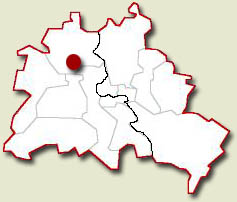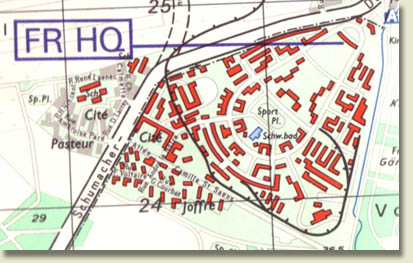Overview
Location
The compound was located on Kurt-Schumacher-Damm in the Wedding district.
Map

Pre Occupation Forces History
The area was used as an artillery range in 1828. A Berlin city map dated 1978 refers to this area as shooting range of the Garde-Füsilier-Regiment.In 1886 the first barracks are built to house a battalion of Zepellin sailors.
After World War I the barracks houses the First Jäger Regiment In 1929 the Prussian Police takes over the barracks and the compound is enlarged.
In 1936 construction works of a new barracks for the German Air Force start.
The first finnished buildings are occupied by the Luftwaffenregiment General Göring in 1937. Part of this Regiment is the Guard Battalion which solely serves as a private guard to Göring's residence.
The compund was named Hermann Göring Kaserne. In 1939 the construction works are finnished including 120 buildings (further buildings were added after the war). A training area and shooting area was located in the north of the barracks but was later replaced by the Tegel Airport.
Occupation Forces History
The barracks are captured by soviet troops in May 1945.The French took over the barracks on August 12th 1945. It was badly damaged (only 20% of the buildings could be used) during the war and rebuilding took until 1952. From then on almost all french troops and staff were housed in the Quartier Napoléon.
The compund was the largest barracks in West Berlin. Besides housing troops Quartier Napoléon also served as HQ and contained various maintnance and support facilities. On November 6th 1947 the 46th Infantry Regiment moves to Quartier Napoléon. In 1955 it is followed by the 11th Regiment Chasseurs (Armor).




